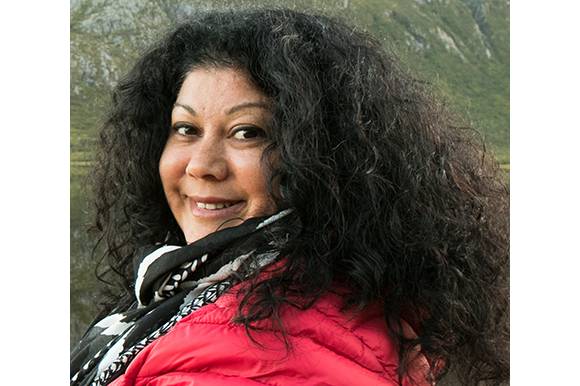Tasciyan spent 16 years working as a journalist, critic and editor and has been a programming director for Turkey’s leading festivals. She is the programmer of Filmmor Women’s Film Festival on Wheels and has served in many national and international film festival juries. She is a member of the European Film Academy. She is currently the President of FIPRESCI, International Federation of Film Critics.
FNE: Being the programme director of the 7th Malatya Film Festival, can you tell us how the programme was shaped this year? What goes into selecting certain films for the different categories in this year’s festival?
Alin Tasciyan: We wanted to create a hub that embraces everyone that attends the festival. We wanted to pick up films that harsh critics and the audience can appreciate alike. I believe festivals, above all, should be a celebration of cinema, a meeting point for filmmakers and cinephiles. MIFF is a relatively young festival; it hasn’t fulfilled its potential yet. Our main aim was to improve the festival as much as we can. Composing a program that everybody could enjoy, selecting films that all the audiences can connect with, has been a challenge. The Andrey Zvyagintsev tribute was the first section we decided. We admire his films very much, and he had a new film; we had a contact and he agreed to participate in the festival as early as May. But when Loveless was selected to compete for the Foreign Language Oscars nomination he cancelled his participation in order to be in Los Angeles. We all wish him luck. The 60th anniversary of the establishment of diplomatic relationship between South Korea and Turkey is celebrated this year. We wanted to contribute with a small programme and panel discussion on South Korean cinema. We are so honoured that the legendary Kim Dong Ho will participate in our festival and receive our Life Time Achievement Award.
FNE: How do you think the 7th edition of this festival is different from the previous ones?
Alin Tasciyan: First of all, apart from me and our general coordinator, who is based in Malatya, there is a totally new team. They are young and hard-working and really excited to organise an international event. I still tend to describe MIFF as a modest, boutique festival but in fact this year it has really grown. The Malatya Film Platform was founded to subsidise new projects for Turkish cinema. Having an industry section changes the nature of the festival in my opinion.
We do care about young filmmakers and give them more space in our festival. We integrated short films into our programme, we will screen the competition titles before the feature films. We are also including a selection from the Azerbaijan region of Iran.
FNE: This year, there are a lot of films addressing family bonds. Can you tell us about the intention of this approach?
Alin Tasciyan: Most of the outstanding films of 2017 focused on the notion of family and the bonds, and questioned the patriarchal societies and conventions from different aspects. Haneke’s Happy End, Xavier Legrand’s Custody, Mohammad Rasoulof’s A Man of Integrity, Zvyagintsev’s Loveless, Antonio Mendez Esparza’s Life and Nothing More, Elina Psikou’s Son of Sofia, Mariam Khatchvani’s Dede, Onur Saylak’s More, etc. Slowly we put together a selection in which the common denominator became the family, besides other subjects and themes such as refugees, the economic crisis, power struggles, etc. The importance of love, trust and hope in today’s gloomy world are emphasised in these films. I believe their emotional depth will touch every single spectator.
FNE: What do you think about the global perception and approach of the cinema of Turkey?
Alin Tasciyan: The cinema of Turkey has reached a very critical point. I admire the high quality of our productions and they are quite well received throughout the world, but we need more diversity. The generation that changed the whole notion of cinema in Turkey in the mid-90s is composed of auteurs who created their own canons. The younger generation's filmmakers that follow them need to emancipate themselves from the conjuncture, show their individual strengths and find their own voices. I am personally very fond of political cinema and militant films but I think our cinema needs a larger variety of films. I am happy that our national competition line up contains distinguished films. I could say as the last national competition of the year, we have a ‘best of’ selection.
FNE: What are you most proud of about this festival? What do you hope for this festival in the future?
Alin Tasciyan: It is too early to be proud of anything. If our juries and audience are happy with our selection, then I could be happy. I only hope for the festival to steadily continue on with this young crew. Malatya has every element a film festival might need: an audience, a university, an infrastructure. For the film industry it is a safe haven. They can gather to discuss cinema far away from the political frustration. Our guests can enjoy their stay because Malatya has a history that dates back thousands of years and the archaeological sites are simply amazing. So is the nature and cuisine.
Sponsored by the Malatya International Film Festival.




















